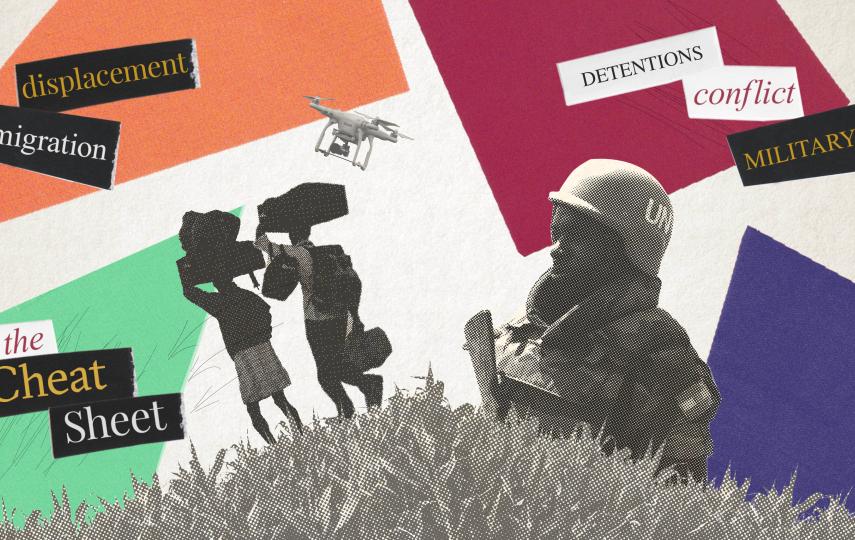The collision between humanitarian crises and rights is on full display as a new Human Rights Council session opens in Geneva.
Often treated as separate strands in the UN system, rights issues and humanitarian crises are clearly intertwined across a busy council agenda. Countries that have seen long-standing emergencies are among those slated for examination, including Afghanistan, Iran, Myanmar, Ethiopia, North Korea, Ukraine, Venezuela, South Sudan, and earthquake-hit Syria.
Human rights and the climate crisis will also be in the spotlight, with separate reports on housing and women’s rights amid more volatile disaster extremes.
Here are a few issues among many on the radar for the latest council session, which runs from 27 February to 4 April:
The elephant in the room
China, namely the repression of its Uyghur population and other minorities, isn’t a specific agenda item, but critiques are certain to be raised.
Groups including the World Uyghur Congress want to see an international investigative body created to examine widespread allegations of abuse in the Xinjiang region.
In a delayed report released last August, the UN’s rights office, OHCHR, concluded that China’s treatment of Uyghurs and other mostly Muslim minorities could amount to crimes against humanity. A separate committee of the rights office has also called for probes into “violations”.
The Human Rights Council itself has become a political battleground over this issue. During the previous session last year, council members narrowly voted against a Western-led motion to hold a debate on the rights situation in Xinjiang. Countries serve rotating three-year terms on the council.
The intersection between rights and climate change
The climate crisis has surged up the humanitarian priority list in recent years, and there’s a similar shift when it comes to international human rights.
Last year, the council mandated its first rights expert, or special rapporteur, focused on climate change. This session, other rapporteurs will table reports examining climate impacts on housing and on women’s rights.
The report from the rapporteur on the right to adequate housing, Balakrishnan Rajagopal, sounds an alarm on disaster inequities, forced evictions, “climate gentrification”, and “green-grabbing” – when climate projects force communities from their land.
“The climate crisis is also a housing crisis,” Rajagopal warns in the report.
The special rapporteur for rights and the environment, David Boyd, is focusing on how climate change multiplies gender imbalances in crises. A UN Women report he cites, for example, said that girls’ school enrolment rates fell when families fled floods and drought in rural Somalia in 2018 and 2019, but boys’ enrolment grew.
The right to privacy
What happens to all the data governments have collected over three years of the COVID-19 pandemic?
Government health agencies have endless streams of personal info used to detect, track, and suppress the spread of COVID-19. These health bodies should be expected to either delete or anonymise the data if it’s not needed, but who’s keeping track?
The special rapporteur for the right to privacy, Ana Brian Nougrères, tried to survey 186 countries to ask when their data would be deleted (only 18 responded). She also looked at public health agency apps and websites in 20 countries to gauge policies on deletion, and found that ”very few, if any” had a clear way to check whether data was deleted or anonymised.
Vaccine (in)equity
COVID-19 vaccine equality will also be on the agenda as part of a report from the UN’s human rights chief, Volker Türk, who was appointed in September.
Wealthy countries hoarded early stocks of COVID-19 vaccines, and relatively few countries included refugees and migrants in their vaccination plans.
Elsewhere, negotiations are set to begin on a global pandemic treaty intended, in part, to avoid a repeat of the lopsided global response to COVID-19. Türk’s report looks at the issue from a rights perspective.
Some 600,000 deaths could have been prevented worldwide if countries had hit 40% vaccine coverage rates by the end of 2021, according to research cited in the report, which also tries to interrogate assumptions about so-called vaccine hesitancy and its historical links to “colonial medical and vaccine research abuse”.
Edited by Andrew Gully.






